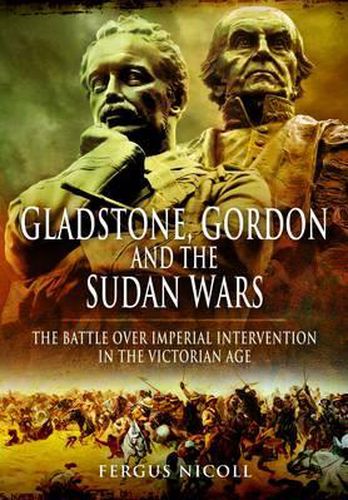Readings Newsletter
Become a Readings Member to make your shopping experience even easier.
Sign in or sign up for free!
You’re not far away from qualifying for FREE standard shipping within Australia
You’ve qualified for FREE standard shipping within Australia
The cart is loading…






General Gordon’s death in Khartoum on 26 January 1885 - and the fall of the besieged city to the forces of the Mahdi - was a crucial episode in British imperial history. It was deeply controversial at the time, and it still is today. Gordon has routinely been depicted as the hero of the story, in contrast to Prime Minister Gladstone who is often portrayed as the villain of the piece, responsible for a ‘policy of drift’ in Sudan. Fergus Nicoll’s radical reappraisal of the first Sudan wars, based on eye-witness accounts and previously unpublished archive material, refutes the conventional image of both men. Presenting an inside view of Gladstone’s thinking and decision-making, Nicoll gives the prime minister credit for his steadfast insistence that Britain should have minimal engagement in and zero responsibility for Sudan. Gordon, who succumbed to a lasting mania that skewed his decision-making and undermined his military capacity, is cast in a more sceptical light. This fascinating insight into British policy in Africa exposes the inner workings of government, the influence of the press and public opinion
and the power of a book to change a government.
20 illustrations
$9.00 standard shipping within Australia
FREE standard shipping within Australia for orders over $100.00
Express & International shipping calculated at checkout
General Gordon’s death in Khartoum on 26 January 1885 - and the fall of the besieged city to the forces of the Mahdi - was a crucial episode in British imperial history. It was deeply controversial at the time, and it still is today. Gordon has routinely been depicted as the hero of the story, in contrast to Prime Minister Gladstone who is often portrayed as the villain of the piece, responsible for a ‘policy of drift’ in Sudan. Fergus Nicoll’s radical reappraisal of the first Sudan wars, based on eye-witness accounts and previously unpublished archive material, refutes the conventional image of both men. Presenting an inside view of Gladstone’s thinking and decision-making, Nicoll gives the prime minister credit for his steadfast insistence that Britain should have minimal engagement in and zero responsibility for Sudan. Gordon, who succumbed to a lasting mania that skewed his decision-making and undermined his military capacity, is cast in a more sceptical light. This fascinating insight into British policy in Africa exposes the inner workings of government, the influence of the press and public opinion
and the power of a book to change a government.
20 illustrations